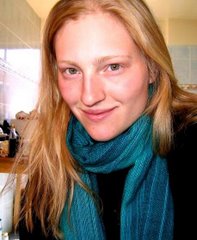So today my mission was to go check out the Hospital de Clínicas, the main hospital that services La Paz. The healthcare system here is a bit different from in the US - what I’ve gathered so far is that people far and away prefer to use local neighborhood clinics not only because they are less costly, but also because they often have better service and supplies. The main hospital, apparently, is a place that people avoid due to poor sanitation and hygiene (think using dirty needles and syringes), and it has been said to me that I should "avoid it at all costs," if you can imagine.
When I got there, the block was absolutely filled with people because the area holds not only the Hospital de Clinicas, but also a medical school, the Hospital de Mujeres, and what appears to be the police/army training grounds. As I wandered in, I was struck by the complete lack of security, and for that matter any sort of central administrative office. Instead, there were patients wandering around an open courtyard style place with lots of sunlight and open corridors. Although it was nice to break away from the sterile atmosphere of the hospitals in the US, I was a bit disturbed by the smell (was it urine?), the lack of sterile space, and the chaos.
In reality, I was there because I have been emailing back and forth with a doctor who worked with the spouse of a fellow UofC grad student. There was no central directory of offices, because there just see to be waiting rooms and procedure areas, not personal spaces. After asking a few people if they knew him, I finally found someone who did, and was directed over to the endocrinology area. After peeking my head into a room with doctors, notebooks in arms, wandering around dormitory-style beds (picture an orphanage and that’s probably about right), I found the doctor standing outside in the courtyard, standing in the sunlight talking with a young woman. He was a bit younger than I expected, and as we started chatting for a while, I realized that he thought I was a doctor...whoops. I had no desire to have to pose as someone who had been medically trained (although I probably could have gotten away with it), so I quickly explained to him that I was a biology student, although I omitted the part about being 20 and an undergraduate (having lab experience basically makes me a grad student, right?). He seemed to think that there were plenty of opportunities to do basic things, like be an observer or even help in the infectious diseases unit, and then he took me over to meet his supervisor, who may or may not be the head of surgery or the head of the hospital (not sure?).
I found my way into a small office area in the main building, where I encountered a middle aged man (the director, we’ll call him) in a nice suit, smoking a cigarette. He motioned for me to sit down, and he settled into the chair opposite me, leaning back and occasionally taking long drags on his cigarette. He started asking me about what it was that I wanted to do, what was my background, how long was I here for, and as we were talking, I noticed that I had developed an audience of about 4 extra doctors, including the original doctor who I had come to see. They all looked interested and a bit perplexed, maybe even a bit amused by my presence. Eventually, he offered that I could start work on Monday on an 8:00am-2:00pm schedule. I’m not sure exactly what I am going to be doing, other than that I am going to be following along some of the work in infectious diseases (tuberculosis, malaria, yellow fever), and perhaps shadowing a doctor, taking notes, developing a small epidemiological project. On my way out, the doctor recommended that I “desayunas bien”, aka eat a hearty breakfast because I should expect a long day…I rather like the sound of that.
It’s unclear what I’ve gotten myself into, other than a glimpse into the heart of public health issues hear in La Paz. Yes, of course I’m a bit nervous that I’m going to be spending a lot of time around very sick people, but I think that this could be a rare opportunity to not only help care for patients (without an M.D.), but also to truly understand the situation of healthcare here. I guess it all started to hit me when they told me that I had to go buy a doctor’s coat. I was a bit confused as to where this might be possible, but then they told me to just walk towards the school…and there would be some people selling them in the street. I found a little stand run by two chola women who were selling doctor’s coats, scrubs, cloth face mask…and latex gloves. By the pair. Oh boy, here we go…
jueves, 28 de junio de 2007
Suscribirse a:
Comentarios de la entrada (Atom)

1 comentario:
oh dios mio! the last few words are enough to frighten me out of EVER receiving any bolivian medical care. EVERRRRR.
Publicar un comentario